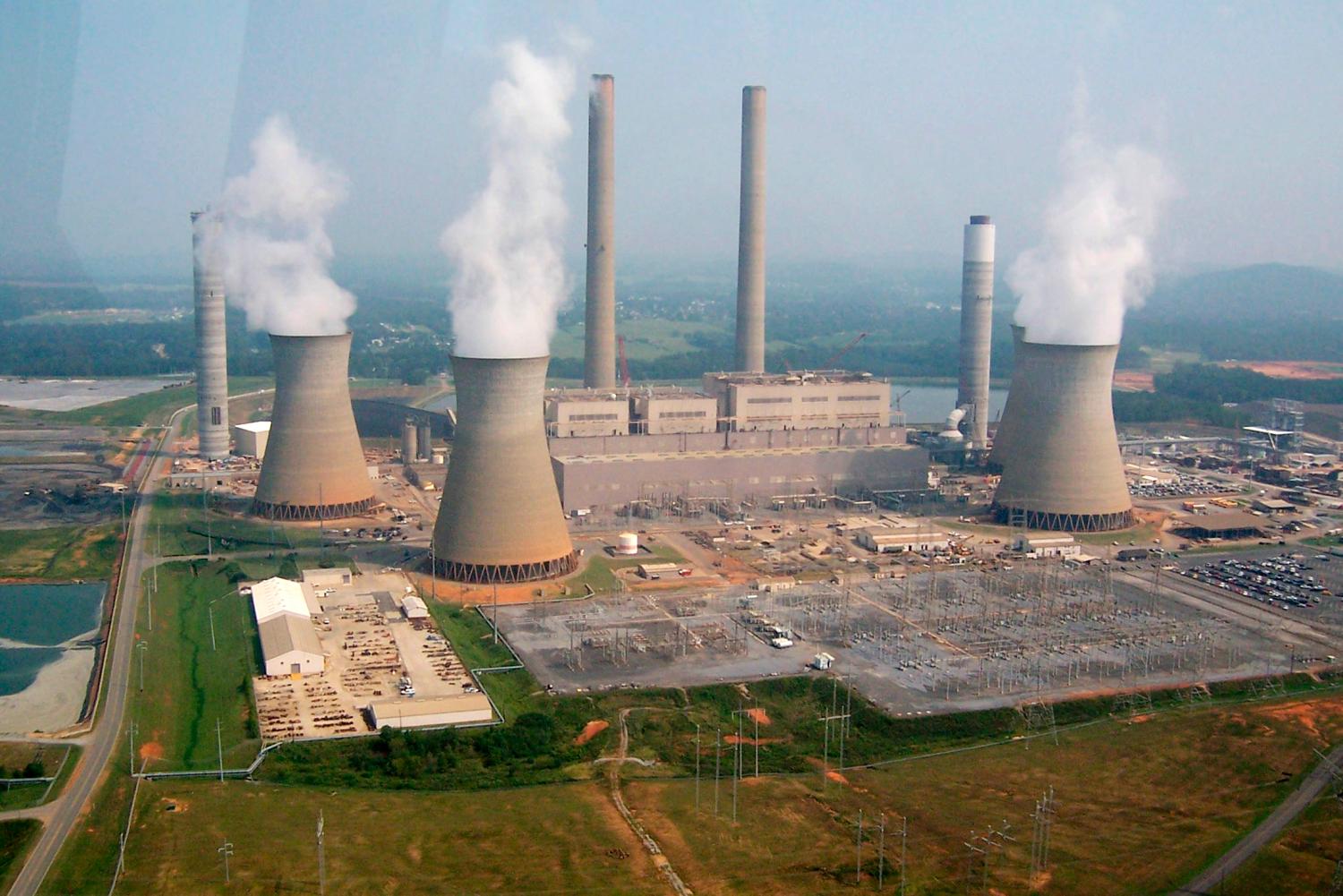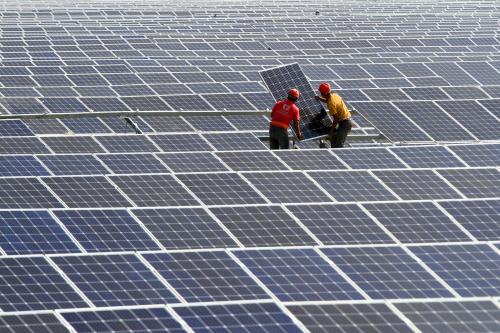Editor’s Note: For Campaign 2012, Bruce Jones, Thomas Wright and Jane Esberg wrote a policy brief proposing ideas for the next president on America’s role in the world. The following paper is a response to Jones, Wright and Esberg’s piece from Strobe Talbott and John-Michael Arnold. Homi Kharas also prepared a response arguing that stark ideological differences between Republicans and Democrats mean the 2012 presidential election could have far-reaching impacts on America’s role in the world.
Bruce Jones, Jane Esberg, and Thomas Wright’s comprehensive and judicious review of foreign policy as a campaign issue in 2012 leads us to reflect on several broad points that the authors either probe or touch upon.
Eight and a half months before Election Day, 2012 is already a vivid reminder of how presidential campaigns often impede far-sighted U.S. foreign policy and harm the country’s image and effectiveness abroad. Any American who travels widely is likely to hear complaints, commiseration, or stupefaction over the way people go about electing, reelecting, or firing their chief executive here. The most important function of American democracy is far from the most dignified and edifying. Foreign friends are aghast at how expensive campaigns are. Newspapers on every continent have played up estimates that it now costs upwards of $1 billion to win—or, for that matter, to lose—the White House. They note how conducive electioneering is to the polarization of the body politic and the dumbing down of serious issues, and how difficult it is for other governments to get business done with the United States during a political season that seems to go on forever.
Most people around the world hope that their country will not be mentioned in the campaign debates or in candidates’ stump speeches—and for good reason: if a nation is singled out, it is likely to be a target of disdain or anger. Think of 2004, when Francophobia was all the rage, or the China-bashing that accompanies pretty much every election year. The only regular exceptions are Israel and Great Britain. Americans should be aware of the damage that the way they conduct the most consequential manifestation of their political life is doing to their standing as the inventor of modern democracy.
Then there’s the more immediate—and, one must hope, aberrational—extent to which U.S. diplomacy and international leadership have been hobbled by the extreme partisanship that began even before Barack Obama was inaugurated. The polarization of American politics and the resulting paralysis of national governance have been worse during the past three-plus years than at any time going back to the late nineteenth century. The scorched-earth, take-no-prisoners, make-no-compromises mood in Washington has kept the federal government from serving well its own citizens and the world as a whole in at least three fields.
The first is geoeconomics, which is increasingly a synonym for—or at least a key component of—geopolitics. The U.S. government’s inability to address adequately, even rationally, its own fiscal crisis threatens the global recovery as well as the American one.
The second is in international security. The United States has, for the past thirteen years, been mired in the embarrassing, even shameful position of refusing to ratify the Comprehensive Test Ban Treaty, thereby making itself the most conspicuous holdout in the consummation of a process that was sponsored by American statecraft since the 1950s. President Obama came into office determined to secure Senate approval of the treaty in his first term, but that hope was dashed in the politically bloody aftermath of the health care wars.
On both economic and security policy, the United States is suffering from an acute case of “2013itis”: almost no matter what the issue, and no matter whom you ask about the prospects for progress, the answer is “We’ll get to that next year.”
And then there’s climate change, the most urgent, most consequential, most dangerous issue of these times. Climate change is also the ultimate example of the nexus between U.S. domestic and foreign policy. As long as the United States is tied up in knots at home, it can’t lead the world.
American voters today have an unprecedentedly onerous distinction: they are both the first generation to realize that they live in the era of global warming and also the last generation with a chance to do something about it. The human enterprise must cut its emissions of greenhouse gases by 50 percent in the coming decades, a period when population is projected to grow by 50 percent. That means in the next five years people have got to begin bending the curve of emissions that drives global warming—otherwise it will probably be too late to head off an irreversibly catastrophic tipping point somewhere around midcentury.
In meeting this daunting challenge, the United States—which has pumped almost a third of total global carbon emissions into the atmosphere since the Industrial Revolution—is uniquely able to catalyze international consensus and action. Whether that is called a window of opportunity or a window of obligation, it is closing.
During his campaign for the presidency four years ago and in the afterglow of being elected, Obama seemed ideal for the role and responsibility of catalyst. His identity and biography were like a parable of the United States as an artifact of globalization at its best. In his statements on the campaign trail in 2008, in his victory speech in Grant Park, and in his inaugural address, he gave priority to rescuing what he called a “planet in peril,” and he vowed to put new emphasis on cooperative solutions to global threats, particularly climate change. In 2009 he undertook a rescue mission to prevent a debacle at the Copenhagen conference on climate change. Back home, he was still pushing hard for cap-and-trade legislation only to see it eventually collapse in the Senate. Since then, the climate issue has been the most conspicuous symptom of 2013itis. The looming question of the 2012 campaign is whether that disease, as its nickname suggests, can be cured after the election. Will a reelected Obama succeed in his second term where he failed in his first? Or will a President Mitt Romney, if he survives the lingering resistance to his nomination within the GOP and goes on to triumph in November, muster the political will to make up for all these lost years?
It won’t be easy. Both men have demonstrated an awareness of the challenge and its urgency in the past. During Romney’s governorship, Massachusetts imposed mandatory carbon emission limits on power plants. But that was six years ago. Now, in a concession to the skeptics who hold sway in his party, Mitt Romney’s position is that “we don’t know what’s causing climate change.”
As for how 2012 will end, no one yet knows who will win the election and how the Earth’s fever chart will look, but they can be sure of this: not only will the United States score zero progress on the climate/energy issue, but there will be backsliding in terms of the public debate and education surrounding it. That’s in part because outright deniers of the science and opponents of corrective action have the upper hand in that debate, but also it’s because of the widespread antipathy in the American electorate to any new taxes, notably including a carbon tax by that or any other name. One must hope that both those factors recede in 2013 and that it’s not too late for the United States to make the transition from being a huge part of the problem to becoming a significant—and leading—part of the solution.



